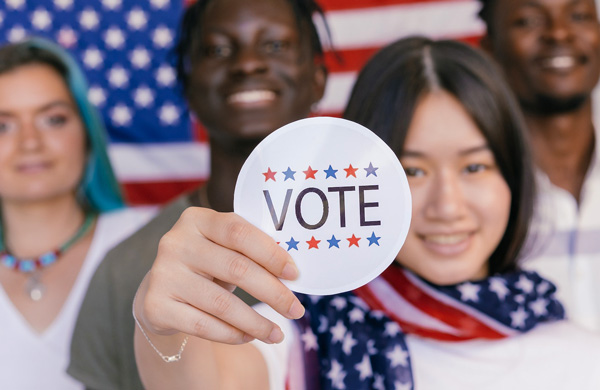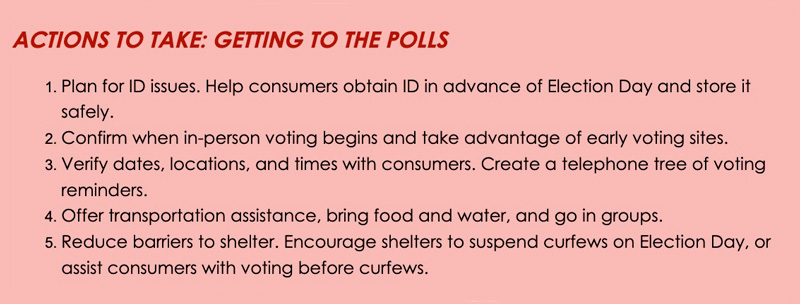
Since the 2020 elections, 42 restrictive voting laws have been passed in 21 states. Many of these laws implemented voter ID requirements, which disproportionately disenfranchise people of color and people experiencing homelessness (PEH). Obtaining an ID can be a near insurmountable obstacle for PEH: You need ID to obtain ID, and many PEH have lost all of their vital records when evicted or during an encampment sweep.

Federal laws requiring Real IDs have made multiple forms of identification necessary for a state-issued driver’s license or state identification card. Some states require a utility bill or lease agreement as proof of address. Finding a way to pay for identification is another barrier that can be prohibitive.
The Supreme Court is hearing a case from Alabama that could further weaken the Voting Rights Act. Alabama redistricted jurisdictions for the 2022 elections, arguably to stifle the voices of Black voters. The state spread Black voters across several districts, giving their votes minimal impact, and created one district with a supermajority of Black voters. Voters in Alabama are polarized along racial lines and advocates argue that the way the districts were drawn is unconstitutional. Should the Supreme Court side with Alabama, voter discrimination will have a stricter definition and other states will likely follow suit with more intentional gerrymandering.
Hoping to secure voting rights, the Freedom to Vote Act, introduced in the Senate in 2021, is a bill that would secure voting rights for many PEH. It expands voting access, mandates same-day voter registration, and forbids purging voter rolls. It also guarantees the right to vote to people with a criminal record. Democrats say the issue of voting rights is on their legislative agenda if they retain control of Congress. It is more important than ever to vote to protect our constitutional rights.

If you have questions, please contact us on the Policy Team.
Let us know what you think.